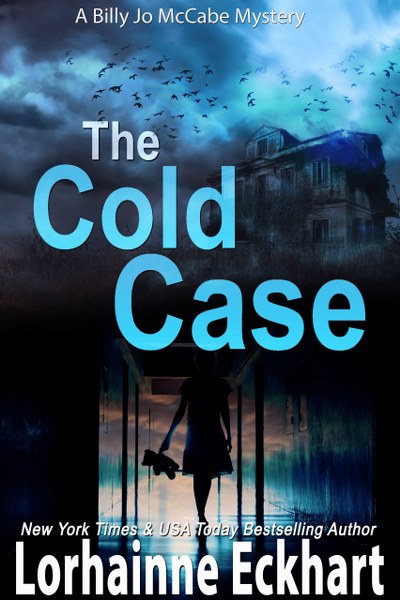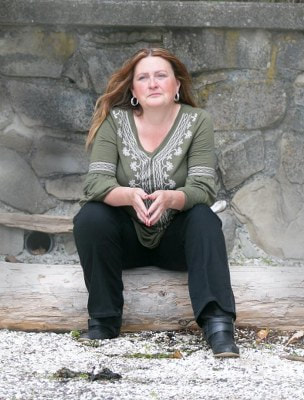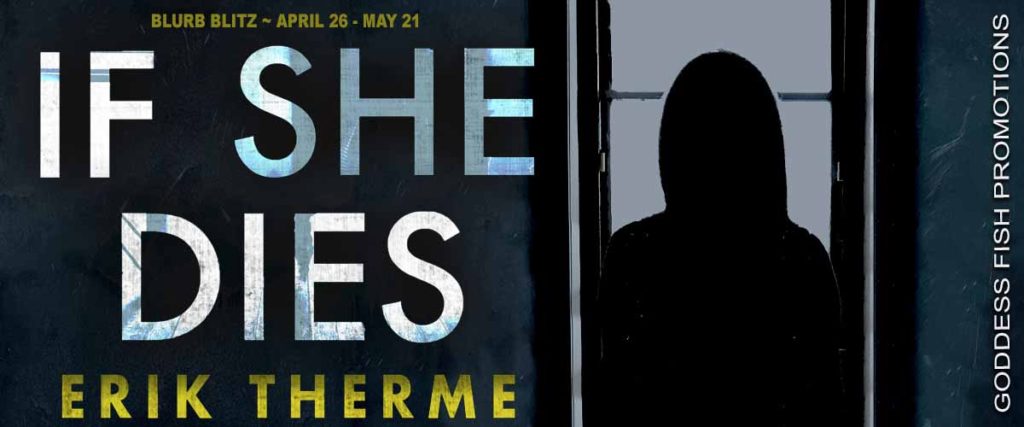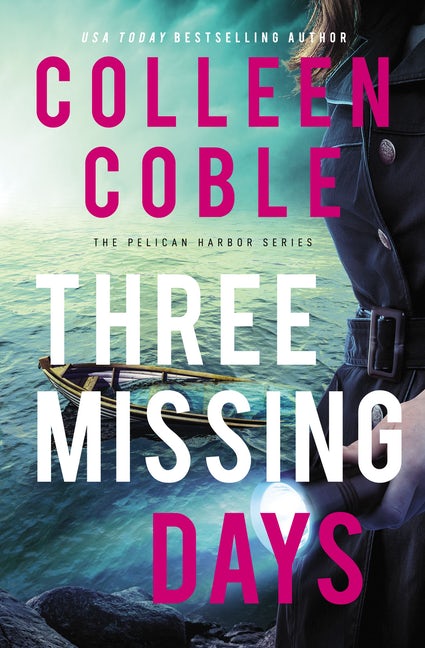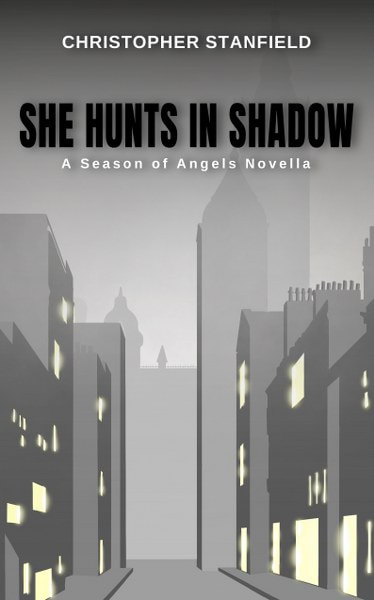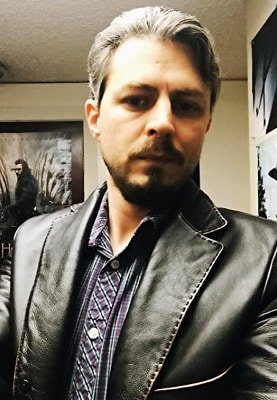Unwitting Accomplice
by Sid Meltzer
March 1-31, 2021 Tour
.

Synopsis:
.
How can a homicide be prevented when it’s still only in some stranger’s head?
Kim Barbieri, a tough, street-smart New York City crime reporter unfazed by male egos and mangled bodies, is sent an anonymous note with a sinister message:
I intend to commit a murder
She doesn’t know who the killer is.
She doesn’t know who his victim will be.
She doesn’t know where, when and how he will strike.
But there is one thing she does know: If she doesn’t learn to think like a killer, someone’s going to get away with murder.
Kudos for Unwitting Accomplice:
“The tension builds page after page, chapter after chapter, between the psycho driven to kill and the reporter determined to stop him—ending with a surprise twist I just didn’t see coming. And I’m a thriller writer!” ~ Steven Pressfield, bestselling author of Gates of Fire and A Man at Arms
Genre: Thriller
Published by: Rogue Phoenix Press Publication Date: December 7, 2020 Number of Pages: 313 ISBN: 978-1-62420-579-8 Series: A Kim Barbieri Thriller
Purchase Links: Amazon | Barnes & Noble | Goodreads
Read an excerpt:
.
Chapter One
Friday, March 24 11:15 AM One envelope stood out from all the others competing for Kim Barbieri’s attention. All it had was her name and address. The rest was blank. Clearly, it was meant for her eyes only, the note inside demanding to be read. Wondering who would write her a personal letter, she put down her cup of coffee, opened the envelope and took out the single sheet of paper inside. Savvy as she was, she was completely unprepared for its stark, ominous message. I intend to commit a murder. There was no Dear Kim above the line, no Sincerely yours below it. Like the envelope itself, there was nothing to tell her the identity of the writer, or why it was sent specifically to her. “Hell’s this?” she whispered to herself. After a long, brutal winter, the sun had chosen that morning to come out and give New Yorkers a hint of the warmer weather to come. It was one of those early spring days, a little too chilly in the shade, yet absolutely glorious in the sun. Barbieri welcomed the retreat of winter, lying out on her patio for the first time since before Thanksgiving, enjoying her ritual first cup of morning coffee while listening to Verdi’s Il Trovatore on her ancient record player. It was an opera she knew by heart, and as it came to an end, she forced herself to get up off the lounge chair, take the LP off the turntable, and pour a second cup of coffee. Her too-brief escape was over, and it was time to attack the backlog of mail that piled up whenever she was too worn out from chasing cops and robbers all over the city to wade through it. It’s not going to go away by itself. She first tossed the 90 percent of it that was junk, then put aside the bills she had to pay. She saved for last the once-in-a-blue moon personal correspondence, like the mystery letter. What am I supposed to do with this? What does it mean? Why did I win this particular lottery? She put the disturbing note back in the envelope to examine it again with a critical eye, as if opening it for the first time. While she had not been called into work that morning—a slow news day, evidently—she never stopped looking at things from a journalist’s point of view. Sweat the details. Always. They tell a story all by themselves. It was a standard, plain vanilla business envelope, white or close to it, with no embossing, watermark, or logo that could have given her the thinnest of threads to pull. Probably from Staples or Walmart. No help at all. Printed on the front were her name, street address, apartment number, and zip code—all correct. The writer knew of her by seeing her byline, she assumed, which meant he also knew what she did for a living. Her stories appeared just about every day in the Daily News, the tabloid whose circulation pretty much ended at the city line. She gave her fellow New Yorker a small nod for accuracy. Whoever sent it had chosen a standard business typeface, and the envelope looked like it came out of a cheap home office printer you could get anywhere. Canon perhaps, or HP. They’re all pretty much the same anyway. In the upper right corner was a common Forever stamp—Elvis before he became a lounge act—precisely aligned with the envelope’s top and side edges. Its postmark revealed it was mailed two days before, on Wednesday, and meant it was placed in her mailbox by a mail carrier rather than the sender. Had the postmark been completely legible, it could have helped her track down the post office where it originated. Unfortunately, only the last two numbers—0 and 9—were clear. The rest was an unreadable blur. I can’t even tell which city it came from. All in all, the envelope itself is giving me next to nothing to go on. She took the letter out again as if she had not done so only a minute before, putting the now empty envelope aside. It was standard letter size and appeared to be the same stock as the envelope. It was folded in thirds, business style, by someone who took care to line up the edges perfectly. One neat and orderly fellow. Or should I say lady? Lord knows men have no monopoly on weirdness. The opportunity to judge people was both an occupational hazard and a perk of the job. After so many years of interviewing cops, witnesses, victims, and assorted dirtbags, she could not help herself. The sinister warning, I intend to commit a murder, was printed on the top inside third of the letter, flush left, in the same typeface as on the envelope. She noted again how the middle and bottom thirds of the paper were left blank. As unsettling as the message was, there was something else creeping her out. This is an unwelcome invasion of my privacy. Somebody out there knows my name, what I do, and where I live. What else does he know about me? My account numbers? My passwords? My family? She put the letter back in the envelope, careful not to leave any more of her own fingerprints or ruin any the writer had left. Tempted as she was to toss it out as a waste of time, she chose instead to hold on to it for now. As a reporter, she knew better than to dismiss a promising lead. Besides, she did enjoy a good mystery, and the killer-in-waiting might decide to give her clues actually meaning something later on. The mail all taken care of, Barbieri poured herself a fresh cup of coffee, grabbed her copy of the Times, and reclaimed her prime sunbathing location on the lounge chair. She had finished reading the paper earlier in the morning, but was never really done with it until she filled in every last square of the crossword. A few more minutes of warmth provided by Mother Nature herself, rather than the down coat she had worn all winter, sure beat rushing to yet another savage crime scene
Chapter Two
Barbieri grabbed her cell off the kitchen counter. She had put the mystery letter aside the day before, but could not put it out of her mind. For twenty-four hours, she had thought about little else except her new anonymous pen pal. Her best course of action was to hash the message out with the one person she could trust to keep his mouth shut. “What?” Pete Delaney was not known for idle banter or witty repartee. Social skills were not one of his strengths. Speaking in monosyllables was. With those two, small talk was kept to a minimum by mutual agreement, if not dispensed with altogether. “Come over.” “Now?” “Now.” “Twenty.” Kim Barbieri was as good as any male with man-talk. She spoke it fluently and was comfortable distilling conversation into its purest form with her partner. When she and Delaney communicated with each other, they competed in waxing ineloquent, and the duels always induced a small smile she found hard to suppress. Reminds me of the stupid secret codes I used to dream up with my girlfriends after school. Delaney was a photographer for the same newspaper, a stringer like Barbieri. Stringers were usually assigned to work together at random, based on who was up at the time. Except for homicides. To the metro desk editor, these two were the go-to team where dead bodies were involved. Working stories together sometimes ended with them hanging out together afterwards, which over time morphed into a sort of friendship. Not romance, certainly. There was no chemistry between them, only a high level of mutual comfort, respect, and trust, which was why Barbieri decided to loop him in on the anonymous letter. Delaney was strictly a news photographer, and he looked the part. On the short side with long brown hair, a scruffy beard that defied grooming, and what seemed like a permanent cameraman’s squint, he went about his work with a brusque, no-nonsense demeanor he had cultivated on the job. Rain or shine, night or day, his camera vest, bulging with lenses and filters, was his security blanket. No shot was impossible as long as he wore it. Growing up in the suburbs, he had imagined himself leading camera safaris in darkest Kenya, where he could apply his photographic skills and critical eye to capture the brutal symbiosis of big cats and their prey. Life had other plans. Until he made it to the Serengeti, the dark urban streets of New York City would have to do. While she waited for Delaney, Barbieri checked her mailbox. No second mystery note. Her mind went back to the troubling message. How did the sender, whoever he or she is, know how to pique my interest? Why would the writer send it to me and not some other journalist? New York has plenty to choose from. Hundreds, I bet. She wanted no part of a planned murder. That much she knew. Yet she was not a fan of loose ends. She liked closure. The sinister message left a lingering bad taste she could not get rid of. In her decade or so of covering crimes, she had seen only a handful of homicides go unsolved. The open cases still kept her up some nights, long after the white shirts in the NYPD decided to stop working on them. Cold cases seemed like a waste of manpower when there was never a shortage of new homicides needing to be solved. No matter how much she tried to block them out of her memory, Barbieri could never stop thinking about what the investigators might have missed. Was it the follow-up call they didn’t make? Maybe the witness who decided he didn’t recognize the perp after all? The DNA sample disappearing off the face of the Earth? Blue lives mattered a great deal to her. When cops and reporters meet day after day, night after night, over stiffs from the seemingly endless supply the city offers up, a bond forms. Maybe a morbid bond, yet a bond nonetheless. When she was with them, she spoke their language, the slang they used only among themselves, not her own. Where else would I get to slip “badge bunny” or “Duracell shampoo” into a conversation? Her empathy for the stiffs and the cops came with the territory. “Got something,” Barbieri greeted Delaney at the door. So much for pleasantries. They went right into their shorthand. “What?” “Patience, young man.” Delaney followed his partner to her desk in the study, a literate woman’s version of a tormented writer’s man cave. Books were piled on every shelf not covered by yellow writing pads, each virgin territory after the first few pages, and atop the center of the desk was an old bargain-basement Dell laptop good for word processing and email, and not much else. She and the Dell went way back. Even after she finally succumbed to peer pressure and treated herself to a Macbook, she could not bring herself to toss it. One day I’ll get around to discarding the old apps and files. Then it’ll run faster, won’t it? She took out the envelope from the drawer, opened it, gingerly removed and unfolded the one-page letter, and placed both next to each other on top of the desk. Delaney’s eyes went from one to the other until he focused on the message. “I intend to commit a murder. ” He waited a nanosecond before asking her, “Fuck does it mean?” “What it says.” “When?” “When did I get it?” “When will he kill?” “Could be a she. Not anytime soon. My guess.” “Nothing to ID the sender.” “Could be anybody.” “From anywhere. Professional, maybe.” “Educated.” “Grammar counts for something.” “One perp, acting alone.” “One victim, not more. Singular.” “Mental case?” “Worker going postal?” “Computer literate.” “Uses Word. Sends file to the printer.” “Home office. Not safe for work.” “Definitely. Probably online. Maybe leaving a trail.” “Leading back to him. Her.” “What now? Police?” “Not yet.” “Nothing they can do.” Barbieri folded the letter, put it back in the envelope, and left it on her desk. As she followed Delaney out to his car, she fought the urge to remind him to keep the anonymous threat just between them. There was no need to; she knew he would not say a word to anyone. The reporter was not impressed with the brilliant deductions they had made based on some generic stationery and a single sentence. It was simple logic at work, and it did not really bring her any closer to identifying the sender. Regardless, by bringing in her loyal sidekick, she now had a better picture of the person threatening to commit a capital crime. The would-be perpetrator morphed from an abstraction, a cipher, into a human being with a name, a family, an address, and perhaps an online history, waiting to be exposed. She felt they had inched the cryptic note closer to becoming a critical piece of evidence in an out-and-out criminal case. On the other hand, their brilliant deductions could all be bullshit, and she knew it. The whole thing could be a hoax some sicko was playing on her. They had been wrong one or two times before, on matters a lot more trivial than murder. They could have been just reinforcing each other’s sloppy thinking. If not, it could turn out to be Barbieri’s first opportunity to cover the premeditated part of premeditated murder. How many reporters get the chance to put a story like this in their scrapbook? She was not sure how exactly, but she felt herself being drawn into a game with an element of danger to someone else, not herself or Delaney. This game might or might not have a lethal ending, and she wanted to know how it would turn out if it was just the three of them playing. Bringing my playmate into this arena is complicating my own involvement. Her mystery guest was now communicating with two outsiders, not just one, and Barbieri was not sure if he would appreciate Delaney becoming her full partner just yet. While she trusted Delaney more than anyone to keep quiet, the writer himself would have no reason to trust him. Her photographer could go to the cops if he ever got spooked. Telling them about her new pen pal was something her inner control freak would not allow just yet.
Chapter Three
When did I start thinking it would be a good idea to murder a complete stranger in cold blood? Can’t say for certain, but I do know things really started to get ugly for me when I put in my papers, posed for pictures with my new Rolex, and realized I’d made myself useless. If my plan to stick a knife in someone’s chest had a start date, this was it. That’s why you drove all the way up here to Almost Canada, isn’t it? To hear my side of the story? Trust me, I’ve wanted to tell it as much as you want to hear it. I used to be a real big shot, you know? It took a few years to escape the grunt work, but eventually I turned into a pretty important guy in the office. I was a big swinging dick, and I rather enjoyed it. Me, I was old-school. I started at the bottom, sharing a tiny cube with another peon. I watched how my bosses made money, and eventually their bosses let me into their world. I worked alongside them, shadowing them. Then one day, I found myself making money like them. King of the world, I felt like. I became my own little profit center for the firm and took off from there. See, as far as the higher-ups were concerned, my job description was very simple—make money. Make sure the company had more in the bank when I clocked out at night than it did when I’d clocked in in the morning. Simple. I was what the corporate world called a rainmaker. It’s a horseshit word for someone who knows how to drum up business and rake in the bucks. I don’t want to brag, but I made a ton of money for the company. A ton. They let me keep a big chunk of it to make sure I didn’t jump ship; between salary and bonuses, pretty soon I was taking home more than I knew what to do with, frankly. As long as I made it rain buckets, the gods were never angry. In my world, money definitely equaled love. You bring in money for the company, and the company shows you how much they love you by giving some of it back to you. They got rich, and I got raises that meant a lot and fancy new titles that meant nothing. Let you in on a secret. All the client wanted from me was to dig him out of the hole he had somehow dug for himself. Help him get home before his kids went to bed once in a while and help him sleep a little more soundly. This was what he was paying me for. You do this for him, you’re golden. Guys in the office looked to me to make the big decisions. They had the business degrees and connections, while I had the kind of wisdom you only get from hard times. I had the scars and bruises, they didn’t. I could spot opportunities. I came up with ideas, set goals, planned. I budgeted, motivated, negotiated, and I sold. I assembled teams, assigned tasks, and managed resources. I cut costs, anticipated roadblocks, put out fires, and made gut calls. I made plans, then executed them. To the HR guys who have a box to fill in the org chart, this job description would’ve been all I needed to get me in the door for an interview. The upstart MBA types I was forced to work with spoke a language the Navajo Code Talkers couldn’t break. Say one of them needed you to pitch in on a project. He didn’t ask if you had the time. He asked if you had extra bandwidth. Seriously, bandwidth? Whoever made this a word, they should bring back the death penalty just for him. My colleagues used ten-dollar words like resource allocation and immunization strategy to describe our job, bullshit terms created to make their work seem harder than it was, and impress outsiders who didn’t speak the language. Gave even our junior guys instant authority, as if they knew what they were talking about. Personally, I never knew what they were fuckin’ talking about half the time, and I was their boss. Consulting in retail was never hard as cutthroat businesses go. It was always challenging, sure, and I could always come up with gimmicks to help stores keep customers coming back and keep their doors open. Everybody thought I’d eventually make partner, even me. Especially me. Then Amazon came along, followed close behind by Josh Kelleher. There wasn’t much I could do to make my clients competitive with Amazon. You want to see what that monster’s done, just walk up Broadway. About the only thing missing is the tumbleweed. There wasn’t much I could do to keep my company from making this douchebag a partner, either. Kelleher was the CEO’s son-in-law, and all my earnings suddenly meant squat in comparison. I worked. Kelleher coasted. He got my partnership. I got a watch. Life’s unfair. I was more than a little pissed, so I walked. Of course, I had to remind myself my company didn’t put me out to pasture when I reached mandatory retirement age. I’d stopped working on my own—my decision, not theirs. They didn’t fire me; I fired them. Maybe I was too angry at being passed over to think clearly. Maybe I should’ve eaten crow and stayed. But this didn’t make my new carefree existence any easier. To my mind, it was not so much things weren’t working out the way I’d planned. Like everything else, my retirement was a work in progress. You tried one way of doing things, one new set of routines. If it didn’t work out, you went to plan B. No big deal. All I could do was hope it would all be OK in time. I’m sorry, bandwidth. Being home all the time, I spent many hours thinking about where I’d found myself and imagining taking a whole new direction no one could’ve predicted—least of all me. *** Excerpt from Unwitting Accomplice by Sid Meltzer. Copyright 2021 by Sid Meltzer. Reproduced with permission from Sid Meltzer. All rights reserved.
Author Sid Meltzer:
.
Sid Meltzer took a couple of worthwhile detours on his way to becoming a crime fiction writer. He started out as a NYS Supreme Court Probation Officer, a job that helped him see things from a criminal’s point of view— and let him peer into their minds’ many dark alleys. Working with ethically-challenged rascals prepared him well for the caliber of people he met in his next career— advertising. That is where he learned how to craft stories that draw readers in and keep them engaged. Unwitting Accomplice is his debut novel.
Tour Participants:
Visit these other great hosts on this tour for more great reviews, interviews, guest posts, and giveaways!
Enter TO Win!:
.
a Rafflecopter giveaway
~~~~~
Thanks so much for visiting fuonlyknew and Good Luck!
For a list of my reviews go HERE.
For a list of free eBooks updated daily go HERE
To see all of my giveaways go HERE.
I am an Amazon Affiliate. Product images are linked.














